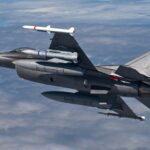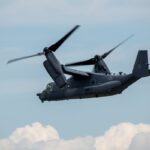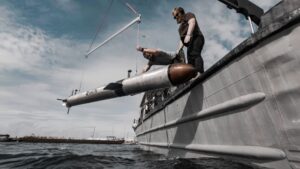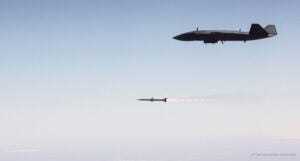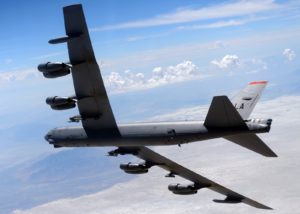
DAYTON, Ohio — With a series of modernization efforts on the table for the Air Force’s aging B-52 bomber fleet, the service will decide over the next two years whether the upgrades merit a model change, officials said June 20. Brig. Gen. Heath Collins, program executive officer for fighters and bombers at the Air Force’s Lifecycle Management Center at Air Force Materiel Command, told reporters that his directorate is working with Air Force Global Strike Command to assess whether the…

 By
By 
